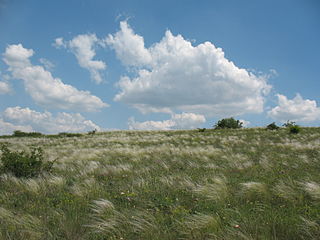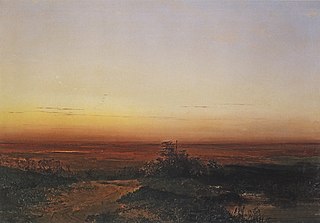See also
- Indo-European studies
- Lexikon der indogermanischen Verben (LIV, published 1998 and 2001 by Helmut Rix and others)
- Proto-Indo-European language
The Indo-European Etymological Dictionary (commonly abbreviated IEED) is a research project of the Department of Comparative Indo-European Linguistics at Leiden University, initiated in 1991 by Peter Schrijver and others. It is financially supported by the Faculty of Humanities and Centre for Linguistics of Leiden University, Brill Publishers, and the Netherlands Organisation for Scientific Research. [1]
The IEED project is supervised by Alexander Lubotsky. [2] It aims to accomplish the following goals:
The project has so far resulted in the following printed works:
The ruki sound law, also known as the ruki rule or iurk rule, is a historical sound change that took place in the satem branches of the Indo-European language family, namely in Balto-Slavic, Armenian, and Indo-Iranian. According to this sound law, an original *s changed to *š after the consonants *r, *k, *g, *gʰ and the semi-vowels *w (*u̯) and *y (*i̯), as well as the syllabic allophones *r̥, *i, and *u:

*Dyḗus, also *Dyḗus ph₂tḗr, is the reconstructed name of the daylight-sky god in Proto-Indo-European mythology. *Dyēus was conceived as a divine personification of the bright sky of the day and the seat of the gods, the *deywṓs. Associated with the vast diurnal sky and with the fertile rains, *Dyēus was often paired with *Dʰéǵʰōm, the Earth Mother, in a relationship of union and contrast.

*H₂éwsōs or *Haéusōs is the reconstructed Proto-Indo-European name of the dawn goddess in the Proto-Indo-European mythology.
In Indo-European linguistics, the term Indo-Hittite refers to Edgar Howard Sturtevant's 1926 hypothesis that the Anatolian languages may have split off a Pre-Proto-Indo-European language considerably earlier than the separation of the remaining Indo-European languages. The term may be somewhat confusing, as the prefix Indo- does not refer to the Indo-Aryan branch in particular, but is iconic for Indo-European, and the -Hittite part refers to the Anatolian language family as a whole.
An etymological dictionary discusses the etymology of the words listed. Often, large dictionaries, such as the Oxford English Dictionary and Webster's, will contain some etymological information, without aspiring to focus on etymology.

Robert Stephen Paul Beekes was a Dutch linguist who was emeritus professor of Comparative Indo-European Linguistics at Leiden University and an author of many monographs on the Proto-Indo-European language.
*Perkʷūnos is the reconstructed name of the weather god in Proto-Indo-European mythology. The deity was connected with fructifying rains, and his name was probably invoked in times of drought. In a widespread Indo-European myth, the thunder-deity fights a multi-headed water-serpent during an epic battle in order to release torrents of water that had previously been pent up. The name of his weapon, *ml̥dʰnis, which denoted both "lightning" and "hammer", can be reconstructed from the attested traditions.
Leiden Studies in Indo-European is an academic book series on Indo-European studies.
The series was founded in 1991 and is published by Rodopi.
Proto-Indo-Iranian paganism was the beliefs of the speakers of Proto-Indo-Iranian and includes topics such as the mythology, legendry, folk tales, and folk beliefs of early Indo-Iranian culture. By way of the comparative method, Indo-Iranian philologists, a variety of historical linguist, have proposed reconstructions of entities, locations, and concepts with various levels of security in early Indo-Iranian folklore and mythology. The present article includes both reconstructed forms and proposed motifs from the Proto-Indo-Iranian period, generally associated with the Sintashta culture.
Numerous lexemes that are reconstructable for Proto-Slavic have been identified as borrowings from the languages of various tribes that Proto-Slavic speakers interacted with in either prehistoric times or during their expansion when they first appeared in history in the sixth century. Most of the loanwords come from Germanic languages, with other contributors being Iranian, Celtic, and Turkic. Slavic loanwords sparked numerous debates in the 20th century, some of which persist today.
Rick Derksen is a Dutch linguist and Indo-Europeanist at the University of Leiden who specializes in Balto-Slavic historical linguistics with an emphasis on accentology and etymology.
Michiel Arnoud Cor de Vaan is a Dutch linguist and Indo-Europeanist. He taught comparative Indo-European linguistics, historical linguistics and dialectology at the University of Leiden until 2014, when he moved to the University of Lausanne in Switzerland. De Vaan had been at the University of Leiden since 1991, first as a student and later as a teacher.
The following is a table of many of the most fundamental Proto-Indo-European language (PIE) words and roots, with their cognates in all of the major families of descendants.
Cowgill's law, named after Indo-Europeanist Warren Cowgill, refers to two unrelated sound changes, one occurring in Proto-Greek and the other in Proto-Germanic.
Bardhyl Demiraj is an Albanian linguist and Albanologist. He is considered one of the leading experts in the study of Albanian etymology.
Alexander Markovich Lubotsky, also known as Sasha Lubotsky, is a Russian-Dutch linguist and Indologist who specializes in the study of Indo-Iranian languages. He is the editor-in-chief of the Leiden Indo-European Etymological Dictionary project.
Proto-Germanic paganism was the beliefs of the speakers of Proto-Germanic and includes topics such as the Germanic mythology, legendry, and folk beliefs of early Germanic culture. By way of the comparative method, Germanic philologists, a variety of historical linguist, have proposed reconstructions of entities, locations, and concepts with various levels of security in early Germanic folklore. The present article includes both reconstructed forms and proposed motifs from the early Germanic period.
*H₁n̥gʷnis is the reconstructed Proto-Indo-European name of the fire god in Proto-Indo-European mythology.
*H₂epom Nepōts is a reconstructed Proto-Indo-European deity who dwells in waters, and whose powers must be ritually gained or controlled by a hero who is the only one able to approach it. The motif may come from swamp gas rising from swamps and igniting. It may come from the high levels of natural gas in Ukraine, the possible Proto-Indo-European homeland.
Weise's law is a Proto-Indo-European sound law that causes the depalatalization of the palatovelar consonants *ḱ *ǵ *ǵʰ in certain contexts. In short, when *ḱ *ǵ *ǵʰ are followed by *r, they are depalatalized and thus merge with the plain velars *k *g *gʰ, respectively. Although this sound change is most prominent in the satem languages, it is believed that the change must have occurred prior to the centum-satem division, based on an earlier sound change that affected the distribution of Proto-Indo-European *u and *r. The law is named after German linguist Oskar Weise, who first postulated it in 1881 as the solution to a cognate correlation problem between Ancient Greek and Sanskrit.